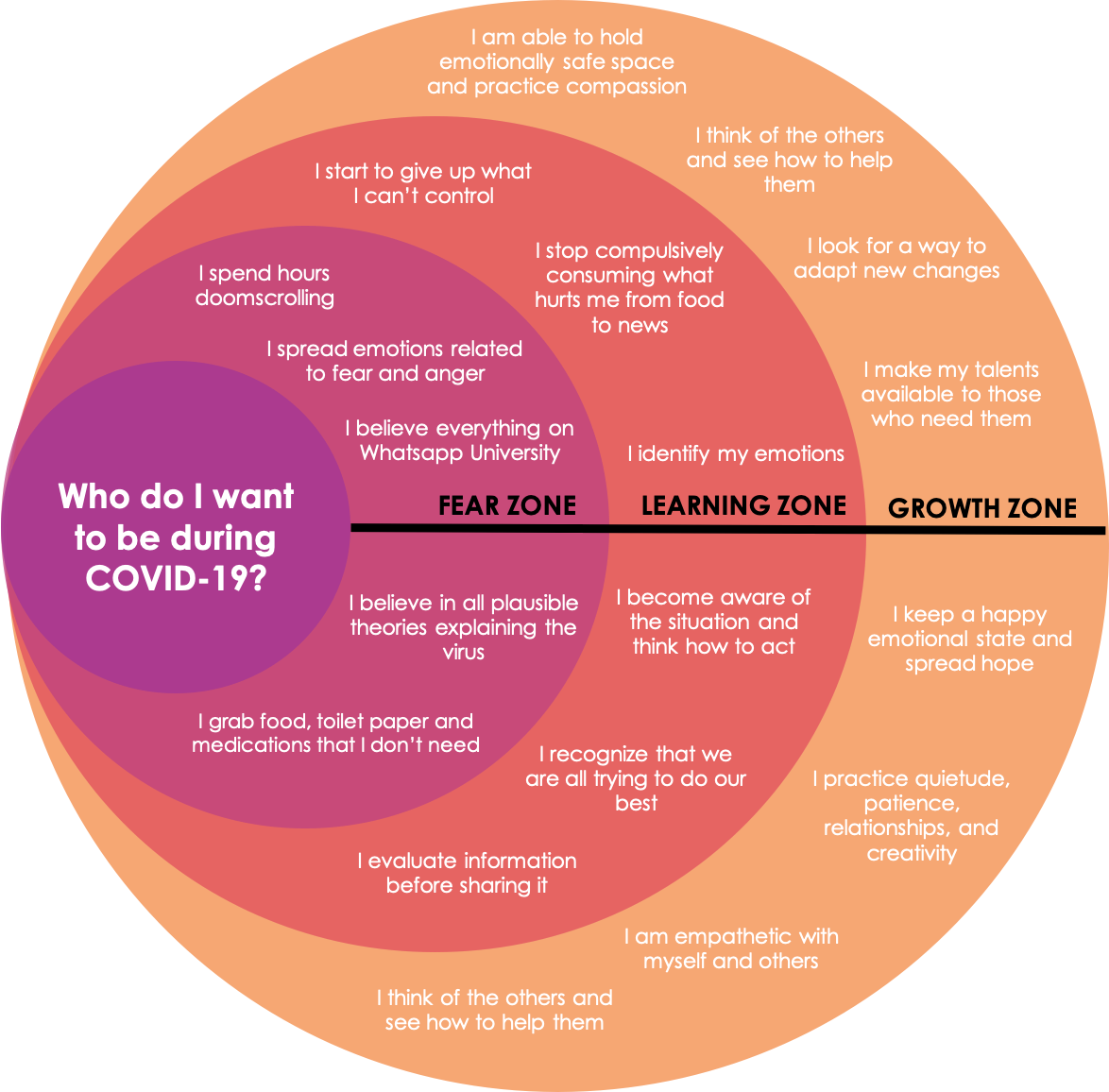Living amidst a global pandemic and one of the greatest economic recessions in world history, we naturally face fears every day about our jobs, kids, health and so much more. Will we or our loved ones come down with the virus? Will we be able to pay our bills? Will our children receive an adequate education if schools are closed? Or are we putting everyone at risk by sending our kids to school?
Fear activates a primitive part of the brain that drives us to behave in ways we otherwise might not. It activates the fight-or-flight response that prioritizes quick decisions rather than contemplation and careful thought. Fear motivates us to seize on the information available to us, and commit to a course of action, even if it’s incorrect.
The pandemic makes us fearful, making us more susceptible to misinformation. In an attempt to resolve the uncomfortable feelings uncertainty creates, we sometimes cling to what might best be described as conspiracy theories. We are thirsty for answers that fit our worldview and provide some relief. It doesn’t matter whether these theories are true or not.
Blaming the spread of coronavirus on 5G towers gives us a sense of control because it’s something we can fight. Believing that COVID was created as a biological weapon makes it more comforting because there is an identifiable enemy to hold responsible. After all, having a villain to blame is easier than having a completely wild, naturally occurring virus that we don’t know how to disarm or stop.

When overwhelmed by a situation or emotions, the mind sometimes seeks relief by rejecting the experience at hand. This tendency to ignore the reality is part of an adaptive mechanism to avoid uncomfortable emotions such as fear, guilt, sadness, anger, grief, or distress. When governed by this tendency to stay in denial, we often engage in distractive or escapist strategies that help us cope with the stressor.
Change can be difficult and painful. If I understand that the global warming crisis is due to human activity, then I must change my lifestyle. But if I believe global warming is a hoax, I can keep my head in the sand and continue with my current way of life. Believing it’s not real reduces its perceived impact on me. That’s why we can become emotionally invested in maintaining these false beliefs.
Presenting provable facts that refute conspiracy theories only leads to us clinging on those beliefs even more, because it’s the only way we believe we can survive the traumatic experience. Therefore, it’s not essential to convince people that they are in denial. Instead show them compassion and help them feel and move through the emotions that pushed them towards denial in the first place.
Emotions, like fear, are a form of “energy in motion.” Once we learn how to honor and feel them, they move and evolve and are transformed. Emotions guide us, teaching us about ourselves and our experience. Working with them instead of against them helps us grow.
To find compassion for our fellow human beings, we first need to open our hearts and minds enough to understand where they are coming from; we need to put ourselves in their shoes. At the core of it, we are all driven by the same fears, however, we all respond to them differently.
It’s essential to not get lost in the details of the conspiracy theory, but shift the conversation to the root of the issue: their fears, concerns, and lack of control. Being heard reduces feelings of powerlessness. So, create a safe space for others to share their beliefs with you. Ridiculing and attacking them will only enhance their threat perception and push them further away from reality. Approach these topics with loving curiosity. Let them know you are not trying to convince them that their reality is untrue, even if it’s clear that you’re not going to subscribe to it.
It is challenging—and non-essential—to debunk every conspiracy theory. But listening with compassion can help people feel they have more control over their lives, even in a small way. Helping people find real, controllable paths to power and self-betterment makes them less likely to believe in conspiracy theories, creating a safer space for all of us.



